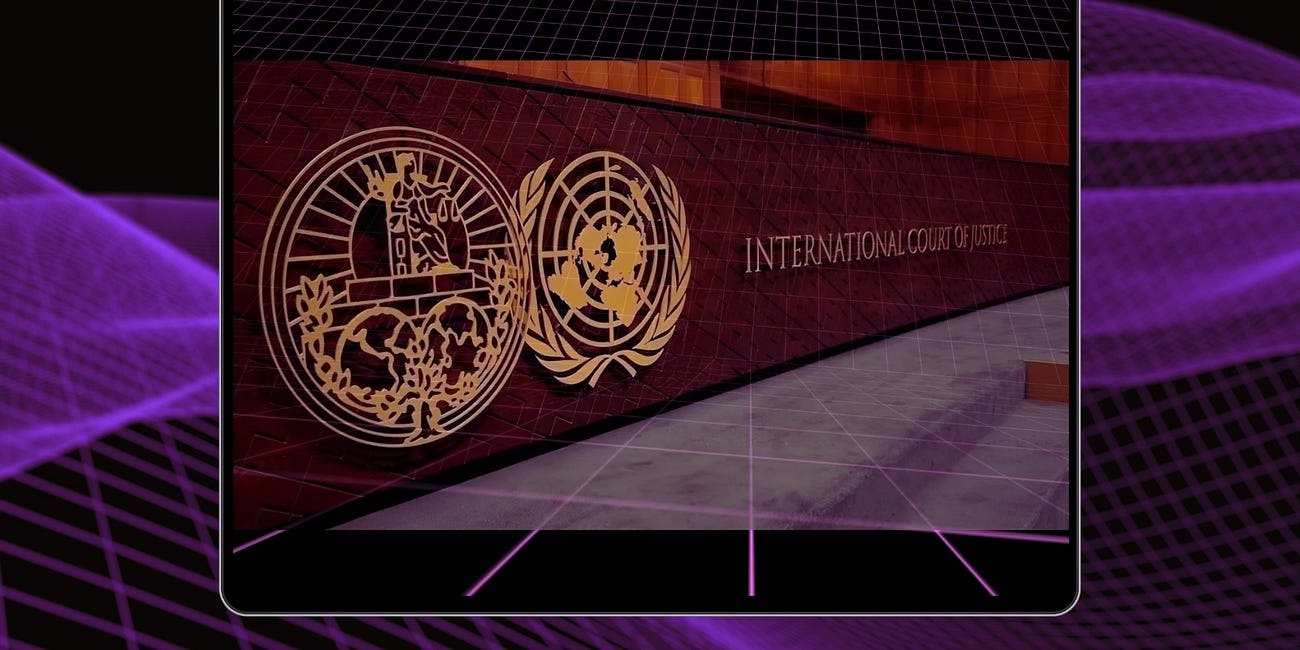South Africa’s Private Security Bill: A Threat to Orania & Civilian Defense
Disarming autonomy and noose tightening under the banner of 'reform'
The new South African bill to disarm private security isn't about safety, it’s a deadly and targeted ban for civilian disarmament worldwide.
Urgent: A new bill moving through South Africa’s Parliament—the Private Security Industry Regulation Amendment Bill—could become one of the greatest threats yet to self-reliant communities and civilian defense. If passed, it would force private security firms to place their weapons under strict state-controlled digital tracking systems and submit to ideologically-driven approval frameworks that determine who may operate and how.
What’s unfolding in South Africa reveals a strategy for how communist front regimes, backed and controlled by technocratic WEF-ers, aim to disarm and subdue populations, under the banner of “equity,” “safety,” or “economic transformation.
The proposed South African bill to disarm private security companies could significantly impact an industry that employs more personnel than the nation's police and military forces combined.
According to the Private Security Industry Regulatory Authority (PSIRA), as of 2023, there are approximately 577,444 active private security officers in South Africa. In contrast, the South African Police Service (SAPS) comprises about 150,950 officers, and the South African National Defence Force (SANDF) includes around 74,508 active personnel. This means the private security sector's workforce is more than double that of the combined police and military forces.1
Summary of Key Stats (as per PSIRA & BusinessTech 2023/2024):
Private Security Officers: 577,444 (registered and active)
South African Police Service (SAPS): ~150,950 officers
South African National Defence Force (SANDF): ~74,508 active military personnel
🟰 Private security sector is more than double the combined force of SAPS + SANDF.
Mandela, Ramaphosa, and Schwab
In an explosive interview with Invisible Cities (see video below), South African molecular biologist Dr. Fahrie Hassan laid out a detailed case for how South Africa's so-called liberation from apartheid was not what it seemed. Rather than ushering in an era of true independence, the end of apartheid marked the beginning of a new form of capture, one dri…
Watch Video Report:
Bill to effectively BAN private security proposed by South African Government aka The 4th Industrial Revolution
At first glance, it appears to be another transformation policy in line with Broad-Based Black Economic Empowerment (B-BBEE). But a closer look reveals a much more strategic, and dangerous objective: the disarming of private communities, particularly white Afrikaners, who have turned to privatized security in the face of state failure.
See how deep the real conspiracy goes, keep reading until the end.
What This Means for Orania
The implications for Orania, the Afrikaner autonomous town in the Northern Cape, are profound.
Founded in 1991 to preserve Afrikaner culture, language, and biblical values, Orania operates independently, with its own banks, currency, utilities, and importantly, its own private security infrastructure. In a country plagued by rampant crime, failing public services, and selective law enforcement, Orania's ability to protect itself has been critical to its survival.
If this bill passes:
Orania would be forced to hand over partial or majority ownership of its private security to outside individuals to comply with the new ownership requirements.
Its ability to equip and train its personnel with semi-automatic weapons, crowd-control gear, or tasers would be severely restricted or criminalized.
The town would be vulnerable to state penetration or ideological sabotage under the pretense of "regulatory compliance."
This is not reform. It is domination disguised as equity.
A Broader War on White Self-Defense
White South Africans, especially farmers and those in rural enclaves have long relied on private security companies, armed response teams, and community watch operations. These systems have filled the void left by corrupt or collapsed state policing, especially in areas where farm murders and politically motivated violence go underreported.
This bill threatens to:
Disband or weaken these systems, especially if they cannot meet the new ownership requirements.
Disarm civilian defense operations, stripping people of the tools they need to protect life and property.
Regulate out of existence any resistance infrastructure that could oppose coming phases of centralized control under the Fourth Industrial Revolution (4IR). Read: globalist capture of South Africa
South Africa The Test Lab for Global Control
This isn’t just about Orania or Afrikaners. This is a pilot project for how technocratic states can disarm and subdue self-sustaining populations under the guise of equity, safety, or economic transformation.
The South African government, with globalist partners watching closely, is showing the world how to:
Criminalize civilian arms and autonomy through policy.
Control land and security through ownership laws.
Genocide cultural groups not by open war, but by legal capture.
Under the language of "land justice," this same state has pursued expropriation without compensation, a move that paves the way for mass property theft. The logic is simple:
First, disarm the population. Then, take what they cannot defend.
Also, view: They’re not just seizing land, they’re seizing minds. By disguising theft as justice, they’ve convinced millions that land grabs are liberation and progress
The Real Objective
The globalist regime operating in South Africa does not want peace, equality, or justice. It wants control—total, digital, and irreversible. The disarmament of private security is not just a political maneuver; it is a spiritual assault against those who dare to live independently, honor their heritage, and protect their families.
South Africa is being used as a test market for global civilian disarmament, starting with those easiest to demonize: white Afrikaners. Branded as historic oppressors, they are now systematically stripped of their right to defend themselves. And once defenseless, the floodgates open—for surveillance, expropriation, and yes, even genocide.
This bill is not about private security. It’s about preparing the people for the final cage, the 4IR digital panopticon, where only the compliant survive, and no one is armed but the state and its corporate enforcers.
And it starts here. In South Africa. Where the world isn't watching.
"The strong man armed keepeth his palace; his goods are in peace." - Luke 11:21
State Approval & Weapon Tracking The Hidden Ideology Behind the Bill
Under the proposed Private Security Industry Regulation Amendment Bill, private security companies in South Africa would be required to:
Apply for government approval to use certain weapons (e.g. semi-automatic rifles, rubber bullets, tasers, water cannons).
Meet state-defined criteria to retain their weapon licenses.
Implement track-and-trace systems on all weapons used by their personnel.
At face value, these changes are framed as “safety measures”—but their true purpose is control.
By requiring state approval and digital monitoring, the government effectively transforms private security into an arm of the state, or renders it inoperable if it refuses to comply. This is not about regulating violence—it’s about ideologically filtering who is allowed to have force, and more importantly, who is not.
🎯 Why It’s Ideologically Motivated
It allows the government to selectively approve or deny licenses based on political or demographic agendas.
It ensures no non-aligned, culturally conservative, or self-reliant communities can maintain the means to defend themselves outside the globalist framework.
It paves the way for digital surveillance and real-time disarmament, especially during moments of dissent, protest, or national emergency.
In short, this is the technocratic replacement of local, trusted security with state-controlled enforcement tools—an ideological move cloaked in bureaucratic language.
It's a prototype, another dry run for a global rollout.
A Global Blueprint in Motion
What’s unfolding in South Africa isn’t isolated. It’s the template, a proof-of-concept for worldwide disarmament and centralization of force under technocratic governance.
Step by step, country by country, the same playbook is being deployed:
Demonize private ownership of weapons—especially among those seen as “historically privileged” or “politically non-compliant.”
Push for state control of all civilian security infrastructure.
Digitize and track all weapons, creating a real-time, switchable control grid.
Tie security compliance to ideological frameworks like “equity,” “sustainability,” and “public safety.”
Slowly criminalize non-state resistance—whether individual or community-based.
The Private Security Bill is simply South Africa’s version of a global strategy, and the model is being exported.
Whether it’s Australia’s weapon buybacks, Canada’s restrictions on semi-autos, Europe’s digital gun registries, or the U.S. ATF’s backdoor gun owner database, the pieces are falling into place.
What starts as policy becomes infrastructure.
What begins as regulation becomes surveillance.
What is promised as safety becomes submission.
Churches Targeted
Disarming South Africa’s Security Industry Endangers Churches
South Africa’s Private Security Ban Is a Blueprint for Global Disarmament.
Churches, farmers, and families will be left defenseless. This isn’t about safety. It’s about submission.
One of the most alarming consequences of the Private Security Industry Regulation Amendment Bill is its potential to leave churches and places of worship vulnerable to violent attacks and mass killings.
Here’s how:
1. Churches Rely on Private Security, Not State Protection
In South Africa, law enforcement is overburdened, slow to respond, and often unreliable, especially in rural or politically overlooked areas. Churches particularly in Afrikaner, conservative, or minority communities, depend heavily on private armed security or trained congregants to guard services and events.
If this bill:
Strips security firms of their ability to use effective defense weapons, and
Forces those firms under partial state control, then churches lose the only realistic line of defense between their congregations and would-be attackers.
2. Churches Are Soft Targets
Just like in the U.S. and Europe, Christian churches are increasingly targeted, whether by ideologically motivated extremists, criminals, or opportunists during periods of unrest. Disarming trained private guards makes churches:
Easier to infiltrate
Harder to defend
More appealing as targets for violent acts
3. This Is a Spiritual Strategy
Let’s call it what it is: part of the anti-Christ system. The goal is not just to make nations vulnerable, it’s to silence the gospel, intimidate the faithful, and eradicate moral order. What better way than to:
Strip churches of physical defense,
Remove their right to protect life,
And make them dependent on a hostile or indifferent state?
This bill, if enacted, will not only expose churches to violence but create the legal grounds for punishing them if they attempt to defend themselves “illegally.”
The ultimate goal is not just disarmament, it is demoralization and eventual destruction of all institutions that uphold God’s truth.
Why This Is Strategic, Not Bureaucratic
This isn't just red tape. In the broader context of technocratic control and racialized policy enforcement, these amendments could:
Neutralize pockets of resistance or self-reliance like Orania.
Force assimilation into the centralized security-industrial system.
Weaken civil defense capacity while strengthening state monopoly on force.
It mirrors broader patterns of decentralized communities being brought to heel under the pretense of equity, transformation, or “national security.”
In Short
Yes, this bill would render Orania, and other private, self-governing communities defenseless, unless they surrender control to the very system they’ve sought to remain independent from.
Please share this information far and wide.
It’s urgent for all people around the world now.
Summer Black, Director, Armor of Truth
ICJ World Court Rising?
Caution: A broader strategy is unfolding to centralize and normalize judicial authority under a 'World Court' accomplished by flooding the international system with selective, politically charged cases that violate human rights under the guise of defending them.
Being Right, Wrongly: How South African Land Stats Are Twisted Into Propaganda
There’s a tactic in modern media that’s as dangerous as outright lying. It’s called: telling the truth falsely and we’ve written about it before.
South Africa Private Security Bill · disarmament legislation · Orania self-defense · Afrikaner communities · church security South Africa · farm attack crisis · globalist weapon bans · Fourth Industrial Revolution (4IR) Africa · surveillance state infrastructure · technocracy in South Africa · civilian disarmament strategy · weapon tracking systems · Klaus Schwab Africa influence · WEF and South Africa · B-BBEE policy enforcement · expropriation without compensation · Christian persecution Africa · rural defense under threat · smart cities South Africa · global governance pilot state #SouthAfrica #4IR #Disarmament #Orania #ChurchesUnderAttack #Globalism
South Africa Private Security Bill sources
Independent Online (IOL). “SAGA Warns New Regulations Threaten to Disarm SA’s Security Industry.” IOL News, November 6, 2023. https://www.iol.co.za/news/south-africa/saga-warns-new-regulations-threaten-to-disarm-sas-security-industry-c93551dc-498a-46dc-a226-9dd56131883f.
Freedom Front Plus. “Draft Regulations for Firearm Use by Private Security Companies Will Leave South Africans Even More Vulnerable.” VF Plus, October 31, 2023. https://www.vfplus.org.za/media-releases/draft-regulations-for-firearm-use-by-private-security-companies-will-leave-south-africans-even-more-vulnerable/.
Trade Law Chambers. “Foreign Ownership of Private Security Industry at Risk.” Accessed April 2, 2025. https://www.tradelawchambers.com/raxo-what-s-on/66-foreign-ownership-of-private-security-industry-at-risk.html.
Politicsweb. “New PSIRA Regulations Deadly for Security Industry – SAGA.” Politicsweb, October 2023. https://www.politicsweb.co.za/documents/new-psira-regulations-deadly-for-security-industry.
Democratic Alliance. “DA Does Not Support Private Security Industry Regulation Amendment Bill.” Democratic Alliance, October 2021. https://www.da.org.za/2021/10/da-does-not-support-private-security-industry-regulation-amendment-bill.
AGOA.info. “South Africa Expects Challenge to Security Law, Says Minister Davies.” AGOA Newsroom, March 2023. https://agoa.info/news/article/5877-south-africa-expects-challenge-to-security-law-says-minister-davies.html.
UNCTAD. “South Africa Restricts Foreign Ownership of Private Security Companies.” Investment Policy Monitor, 2021. https://investmentpolicy.unctad.org/investment-policy-monitor/measures/3754/south-africa-restricts-foreign-ownership-of-private-security-companies.
South African Government. “Private Security Industry Act and Security Officers Act: Regulations.” Government Gazette, 2021. https://www.gov.za/documents/notices/private-security-industry-act-and-security-officers-act-regulations-firearms.
Wikipedia. “Regulation of Foreign Military Assistance Act, 1998.” Last modified April 2, 2025. https://en.wikipedia.org/wiki/Regulation_of_Foreign_Military_Assistance_Act%2C_1998.
IFSEC Global. “South African 51% Ownership Law Faces Industry Hostility and Legislative Hurdles.” IFSEC Global, 2023. https://www.ifsecglobal.com/security/south-african-ownership-law-faces-industry-hostility-and-legislative-hurdles/.
Support Armor of Truth official donation page: Donate
Private Security Industry Regulatory Authority (PSIRA). Annual Report 2023, October 30, 2023. Accessed April 2, 2025. https://www.psira.co.za/dmdocuments/PSIRA_Annual%20Report%202023_web_301023.pdf.
BusinessTech. “Private Security Booms in South Africa as Trust in Police Tanks and Criminals Make a Killing.” BusinessTech, February 13, 2024. Accessed April 2, 2025. https://businesstech.co.za/news/lifestyle/772767/private-security-booms-in-south-africa-as-trust-in-police-tanks-and-criminals-make-a-killing/.
Wikipedia. “South Africa – Military and Police Personnel Statistics.” Accessed April 2, 2025. https://en.wikipedia.org/wiki/South_Africa.





















